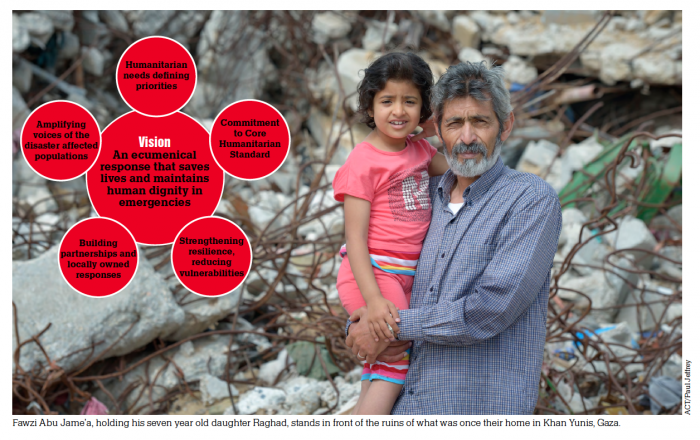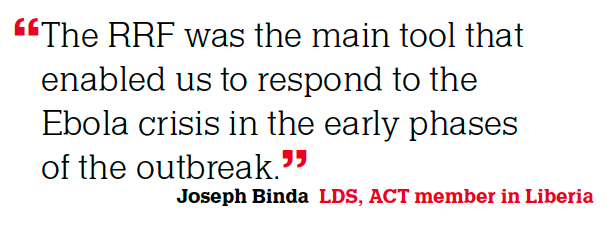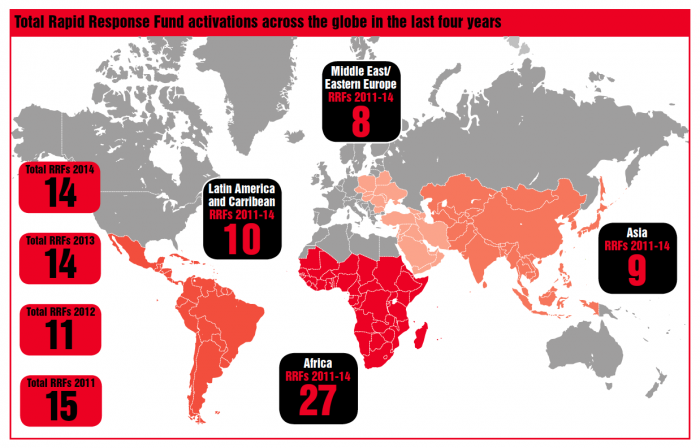
As a global alliance, with presence in more than 140 countries, primarily at the local and national levels, ACT Alliance members are well positioned to respond to local emergencies enabling a rapid response and minimising damaging impacts of disaster. Rooted in faith, the alliance uses community-based frontline responders, even in disasters that do not make international headlines
The strength of ACT Alliance is the multitude of different organisations that make up its membership. It is in this spirit, and with this diversity, that the ACT Alliance endeavours to respond to emergencies around the world – local or global, large or small – with an ecumenical desire to respond to the needs of communities when they are at their most vulnerable.
 ACT Alliance has the privileged position of being a network of local, national and international actors committed to partnerships amongst each other. This commitment enables international and global members of ACT to enhance the capacity of local and national actors, allowing for first phase response in the beginning of a crises or disaster to come directly from the community itself.
ACT Alliance has the privileged position of being a network of local, national and international actors committed to partnerships amongst each other. This commitment enables international and global members of ACT to enhance the capacity of local and national actors, allowing for first phase response in the beginning of a crises or disaster to come directly from the community itself.
The Rapid Response Fund (RRF), supported by ACT members and managed by the Secretariat, responds to thousands of people around the world each year – people who would not otherwise have assistance in a timely way that responds to urgent, life-saving need. Support for the RRF enables ACT Alliance to highlight the essential role that local and national responders – who are already in the disaster and conflict areas – play.

The RRF is the tool for responding to small and medium level, sudden onset emergencies. Within the new ACT Humanitarian Response Mechanism, the RRF will play an increasingly significant role.
Human Dignity, community empowerment and capacity-building are cornerstones of our local and national responses. For ACT Alliance, emergency response is more than saving lives; it is also a genuine desire to invest in resilience and disaster risk reduction within communities so that populations at risk can prepare and protect themselves.
